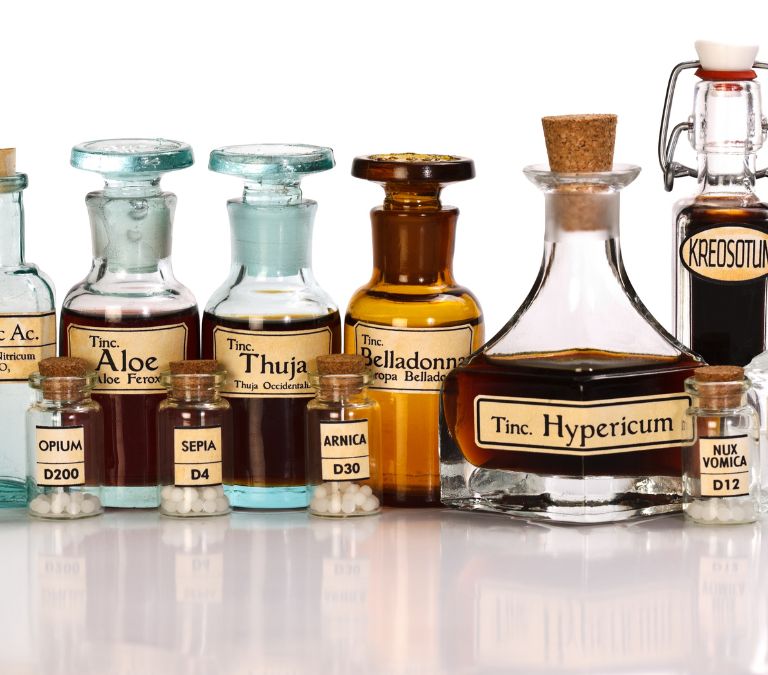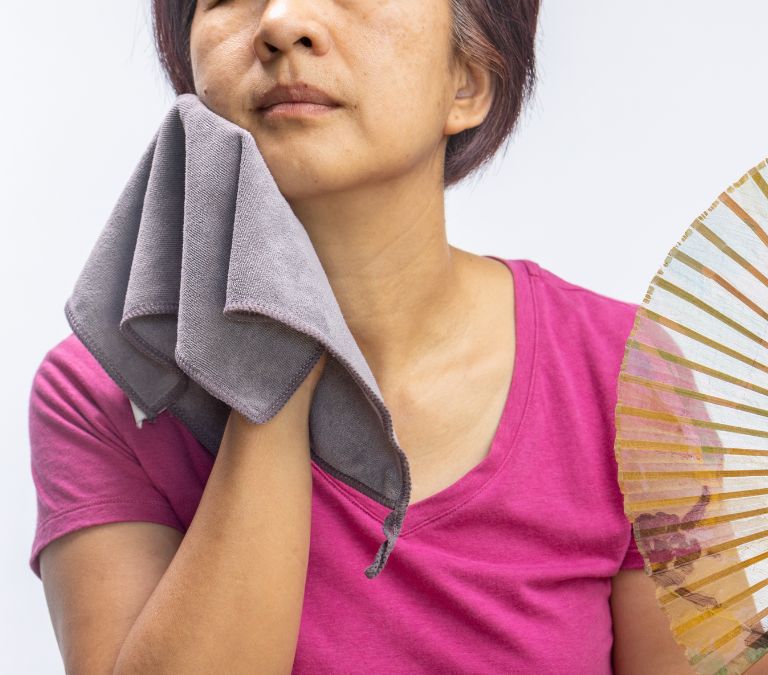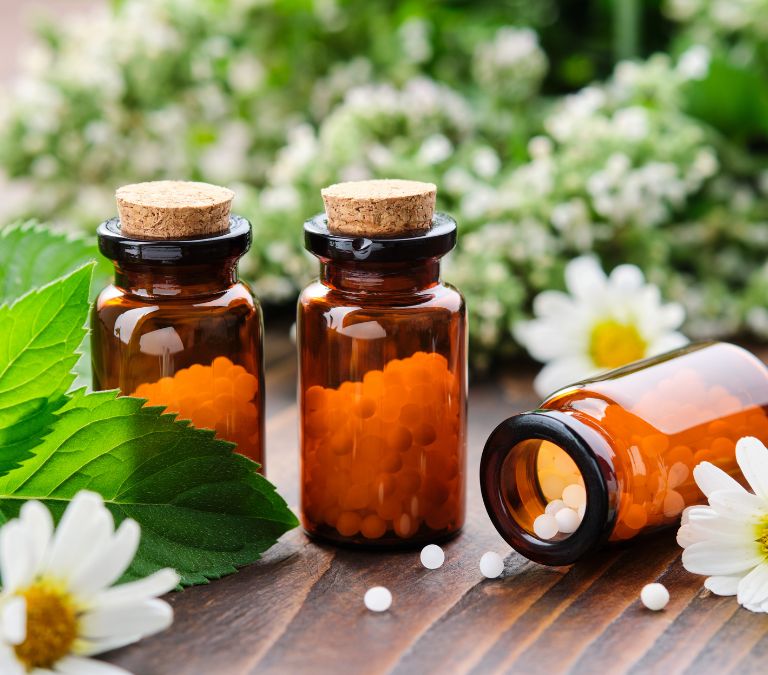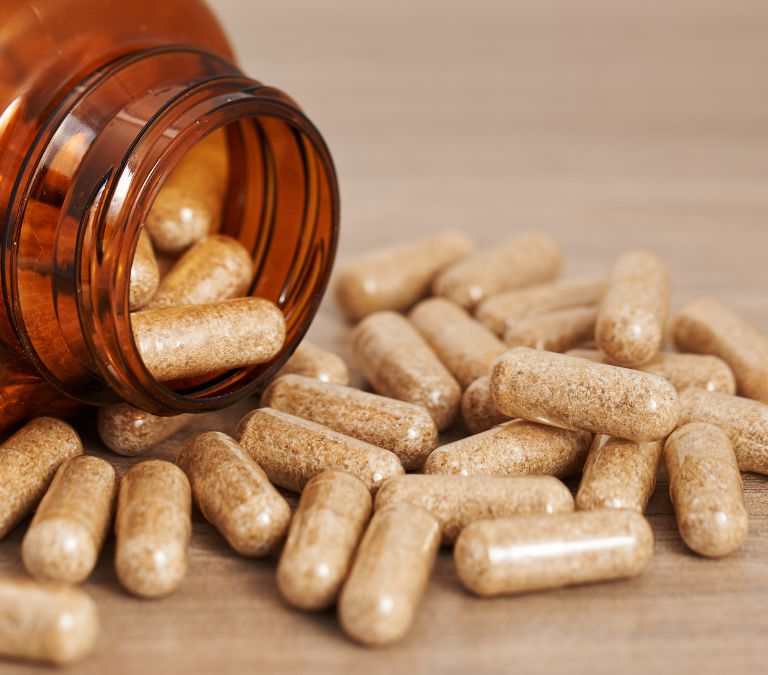Homeopathy is an unproven, unorthodox, or pseudoscientific alternative medicine where practitioners (homeopaths) believe that substances causing diseases in healthy people can help sick people experiencing similar symptoms. Homeopathy operates with the concept of “like cures like.”
In today’s society, people have sought solutions to problems related to their health, and homeopathy has become very popular among all alternative medicines. While the beliefs in homeopathy aren’t backed by any scientific laws or proven in any branch of science, many recipients have shown significant changes in their conditions when administered homeopathic medicine.
How Homeopathy Works

As stated earlier, homeopathy operates with the principle that “like cures like.” In more elaborate terms, homeopaths aim to treat a disease with the theory that substances that cause symptoms in a healthy person can treat disease in an individual with similar symptoms.
Homeopaths do this in a bid to provoke the natural defenses of the body. For example, allergic reactions to watery eyes can be treated using a red onion, knowing that red onions also cause watery eyes in perfectly healthy individuals. In this case, red onion serves as the homeopathic product.
Homeopathic products are diluted first before administration. It is believed in homeopathy that the potency of a homeopathic product increases with the level of dilution. The more diluted the substance is, the more potent and effective it is.
In addition, these products (diluted homeopathic products) contain many substances ranging from plants, minerals, chemicals, animals, and even humans. If any of these substances trigger the development of symptoms in healthy individuals, homeopathic doctors administer them to sick individuals with exactly or similar symptoms, but this time, they are very diluted.
In conclusion, these products are taken into the body, hoping to cure a sick individual from an illness by triggering the body’s natural defenses to that illness. The mechanism and effectiveness of homeopathic medicines are quite controversial. Well-known health bodies like the FDA and the NHS do not offer any form of approval for the use of homeopathy as a treatment option for any sicknesses. Many medical professionals describe homeopathy as absolute quackery.
Even with the verdict of the FDA, the NHS, and many other people who know so much about medicine, one cannot overlook the testimonies of many people worldwide on the effectiveness of homeopathy. The public health service covers the cost of homeopathy treatment in countries like Luxembourg and Scotland. Homeopathy is a standard medicine in other countries like India, even in hospitals.
Conditions Treated with Homeopathy
Homeopathy isn’t a “get well quick” treatment option for every human condition. While homeopathy can be used for various conditions, common conditions treated by homeopathy include migraines, allergies, irritable bowel syndrome, depression, headaches, colds, coughs, toothaches, bruises, rheumatoid arthritis, premenstrual syndrome, and menopausal symptoms.
With the symptoms associated with menopause, many women are looking for alternative treatments to help them go through a smooth transition through perimenopause and into postmenopause. While homeopathic medicine isn’t very common among menopausal women, many women reported considerable success with it in their bid to eliminate menopausal symptoms.
Menopause and its Problems

Menopause is that time of every woman’s life when childbearing becomes impossible and hormonal fluctuations become imminent. The typical woman’s body contains the ovaries responsible for producing eggs and major sex hormones like estrogen, progesterone, and testosterone. During menopause, the functionality of the ovaries becomes heavily depreciated, and with time, it ceases to produce eggs.
The production of sex hormones is affected due to the cessation of the ovaries from producing eggs. In turn, there is an alarming decline in hormonal levels. The decline in hormones is the major cause of symptoms during menopause. Some common menopausal symptoms include hot flashes, night sweats, osteoporosis, vaginal dryness, and sleep deprivation.
More than 70 percent of menopausal women in the United States experience hot flashes, and more than 80 percent experience other symptoms of varying severity. These symptoms may last from 6 months to 2 years, but in some women, the symptoms may last for many years.
The Problem with HRT
With more women going into menopause, the need for effective treatment and management options has been amplified. Medical practitioners are working round-the-clock to develop more treatments for menopausal symptoms. With the efforts of these medical elites, treatment and management options like hormone therapy and lifestyle changes have been quite effective for menopausal symptoms.
However, many of these symptoms come with their flaws and risks. For example, hormone therapy has increased the risks of developing severe diseases like breast cancer, endometrial cancer, cardiovascular diseases, and incidental hypertension.
While HRT has shown positive and significant results in many women worldwide, others have experienced excruciating symptoms and have been exposed to more diseases capable of jeopardizing their lifestyles.
Before a woman takes hormone therapy, a doctor will usually perform tests to determine if it’ll be compatible with her body. Hormone therapy shouldn’t be advised for women with underlying illnesses like stroke and high blood sugar. Due to the number of risks associated with hormone therapy, women today are finding alternatives to help with their menopausal symptoms. Today, options like acupuncture, naturopathy, supplementation, and homeopathy are being considered as likely alternatives to hormone therapy.
Menopause and Homeopathy
Menopause is a delicate period of every woman’s life. During menopause, many women do not know what to do to help with their symptoms. Today, many women end up aggravating symptoms just by the medications they take or the foods they eat.
With the complexity and uniqueness of the human body, many people react differently to the same conditions. For some menopausal women, hormone therapy may be very effective, and for other women, not at all. Women today are exploring alternatives to treat their menopausal symptoms.
Worldwide, homeopathy is emerging as an effective alternative in treating menopausal symptoms. Homeopathy for menopausal symptoms is considered by homeopaths effective and risk-free. Previously, hormone therapy has taken center stage as the preferred treatment and management option for menopausal symptoms.
However, the risks involved in hormone therapy have made many women reconsider its use. Homeopathy as a treatment option for menopausal symptoms is slowly gaining popularity among many women worldwide.
Menopausal symptoms like hot flashes, hair loss, depression, memory loss, osteoporosis, low sex drive, joint pain, dry skin, weight gain, incontinence, and sleep deprivation are common problems homeopathy may be able to provide solutions to.
Why You Should Consider Homeopathic Medicine for Menopausal Medicine
Homeopathy is very different from other treatment and management options for menopausal symptoms. Even with the controversies surrounding homeopathy, more people are trying it out and getting good results. According to the World Health Organization, more than 500 million people are recipients of homeopathy.
With this, homeopathy has become the second most popular medicine worldwide. Homeopathy is safe and non-addictive, unlike other treatment options for menopausal symptoms. Also, homeopathy doesn’t just aim to treat symptoms; it gives more attention to treating the body as a whole. An individual who visits a homeopathic doctor to stop a headache will be treated for conditions causing the headaches. This way, complete treatment is assured to prevent the recurrence of the symptoms.
Top 7 Homeopathic Remedies for Menopause

Zincum Valerianum
Also referred to as the valerianate of zinc, this homeopathic medicine is widely used by homeopaths as a treatment option for depression and increased irritability during menopause. Most cases of depression during menopause are caused by the inability to get enough sleep. Distortion in sleeping patterns is usually caused by very discomforting cases of hot flashes and night sweats, especially at night. This homeopathic medicine may also be effective during memory loss caused by fluctuating hormones during menopause. Zincum valerianum may also be useful for treating severe back and neck pains.
Sometimes, menopausal women experience nightmares that may make them yell and utter loud sounds while asleep without having any idea what they are doing. This treatment option may provide lasting solutions to problems like these.
Sepia
Sepia is an example of homeopathic medicine that can be effective for slim or athletic menopausal women with a narrow pelvis. Sepia is prescribed during cases of sagging eyelids and dark spots around the eye caused by stress and the inability to sleep from frequent hot flashes and night sweats.
During menopause, the pelvic floor muscle, which supports important organs in the pelvic region like the uterus, the bladder, and the bowel, can weaken and make these organs sag. Sepia can be effective in menopausal women experiencing varying and frequent feelings of heaviness in their pelvic region. In many cases, menopausal women with a dragging sensation in their lower abdomen often try to sit with their legs crossed in a bid to offer a level of support to the uterus and bladder.
Sepia can help with hot flashes, a very common symptom during menopause. Hot flashes begin in the chest region and can suddenly spread to all body parts. In most cases, hot flashes lead to uncontrollable sweating and a feeling of pain, weakness, and discomfort.
Menopausal women with hot flashes sometimes wear light and loose clothes, even during winter. This way, they are trying to take advantage of the environment’s temperature to reduce cases of heat in the chest area. Sepia can be effective as an alternative option for treating hot flashes in menopausal women.
For cases of nausea, headaches, and migraines during menopause, sepia can also be used as a treatment option.
Calcarea Carbonica
Unlike sepia, calcarea carbonica is most effective for flabby and busty women. In some menopausal women, weakening of the bones is common. Even with an increased risk of developing osteoporosis during menopause, many women still do not include calcium in their diets. Calcium is very important for the growth and development of strong bones and teeth.
Generally, menopausal women are advised to add more calcium to their diet in a bid to reduce their risks of developing osteoporosis. However, some women still have weak bones even after adding calcium to their diet plans. In cases like these, the body does not absorb or use calcium. Calcarea carbonica can be very effective for women with weak bones and whose bodies do not use the calcium added to diets.
In some cases, menopausal women may experience a cold sensation in their feet even in a relatively warm room. Some other menopausal women may experience symptoms like bloating in the abdominal region and feeling of weakness from doing routine activities. In these cases, calcarea carbonica may be effective as a treatment option.
Cimicifuga Racemosa
Also known as black snake-root, cimicifuga racemosa may be effective for problems relating to mental and psychological health issues like depression and panic attacks. Most menopausal symptoms are physical. However, many women are suffering from mental issues caused by menopause. Some mental or psychological issues caused by menopause are anxiety, memory loss, depression, irritability, moodiness, sadness, and panic attacks.
Women who usually require cimicifuga racemosa have weird recurrent nightmares and feelings of impending evil, which may lead to severe depression and fear, even in the face of no threats. In some cases, menopausal women may experience pain in the head region and, sometimes, feeling of electric shock in specific parts of the body. Cimicifuga racemosa is one of the most effective homeopathic medicines for brief muscle and joint pains.
Sanguinaria Canadensis
This homeopathic medicine is a popular treatment option for hot flashes during menopause. Hot flashes could be so severe that the cheeks and chest become red. Also referred to as bloodroot, sanguinaria canadensis can be useful for menopausal women experiencing problems related to their cardiovascular system.
Sometimes, menopausal women may have slight disturbances in how blood flows to different body parts. Many of these women may experience dizziness when they stand from a sitting position. In rare cases, menopausal women may feel like blood is pumped directly from the heart to the head and chest region. A homeopathic doctor may prescribe this medicine for treating hot flashes and slight problems with the cardiovascular system.
This homeopathic medicine may also effectively treat headaches and migraines that lead to pains in the face with more effects felt in the eyes. It may also effectively treat tearing and stiffness of muscles in the right shoulder, back, and neck regions.
Kalium Carbonicum
This treatment option may be effective for women with sweat issues. In most cases, too much sweat during menopause results from hot flashes. However, sweating can also be common, even without hot flashes. Excessive sweating can lead to dehydration which can be very detrimental to the health of menopausal women.
This treatment option can also be effective for obese menopausal women and during cases of bloating caused by menopause. Sometimes, the upper eyelids may be swollen, with frequent pain in the back region. Kalium carbonicum may be a treatment option for many of these symptoms.
Ignatia Amara
Sometimes, menopause affects the emotion more than it affects the physical body. Ignata Amara is a medicine that could be quite effective in helping to reduce emotional stress during menopause. Some menopausal women may have flashbacks of painful events that have happened in the past. These flashbacks can cause sudden feelings of grief and worry. In cases like this, these menopausal women try to find a quiet and private place to think and, in most cases, cry.
Ignatia Amara can be effective in helping treat panic attacks, frequent grief, and feelings of being threatened. Menopause can mess with emotions to the extent that a woman becomes more reserved and non-communicative. When these symptoms become frequent, it could be very devastating to the mental health of the woman. To find solutions to these problems, many women resort to alcohol, drugs, and coffee, substances that are only bound to worsen the symptoms. Ignata Amara is very popular among homeopaths for treating menopausal symptoms affecting mental health.
This treatment option can also be effective in severe headaches during menopause.
FAQs on Homeopathy for Menopause
How long will you start seeing results from homeopathic medicine?
The time it takes to get results from homeopathic medicine depends solely on the body. Homeopathy is not a one size fits all scheme and, therefore, may get varying results in a different body. A typical homeopathic treatment takes a few hours to a few days to get results. However, results can be delayed to a few months in individuals with chronic disease.
Is homeopathy a permanent cure for menopausal symptoms?
Generally, menopausal symptoms stay for a few years and gradually fade. During the peak of menopausal symptoms, homeopathy can help menopausal women go through a smooth transition with few complications. For other symptoms, homeopathy’s longevity depends on the patient’s body. While homeopaths aim to induce permanent solutions in the body, the body’s reception to the treatment may say otherwise.
Are there side effects associated with the use of homeopathic drugs?
There aren’t any proven side effects associated with homeopathic drugs. The non-existence of side effects is because of the non-invasive structure of homeopathic drugs. Instead of attacking the diseases, homeopathy aims to strengthen the body’s defense against the disease. However, patients who take substances like alcohol and coffee during treatment may worsen the symptoms. Generally, menopausal women are advised to avoid alcohol and reduce their intake of coffee and other caffeinated products.
Can homeopathy treat chronic illnesses?
Yes, homeopathy can treat chronic illnesses. Homeopaths believe that the body can fight off many severe illnesses with the right assistance. Unlike regular illnesses, chronic illnesses take a longer time to see results.
Can homeopathy and conventional medicine work together?
Both medicines are capable of working together. Since homeopathic medicines are generally non-invasive, they do not react with other medications. However, patients who take both homeopathic and conventional medicine at the same time are advised to get the approval of a doctor or, better still, be closely monitored by a doctor.
Is homeopathy a licensed form of medication in the United States?
In the United States, homeopathy is not licensed by the FDA. Together with other pseudoscientific medicines like naturopathy, homeopathy in the United States is tightly regulated and isn’t a regular item in medical stores. However, homeopathic medicine isn’t prohibited and can be freely taken and even bought in specific stores around the US. Homeopathic medicines are also found online.
Which homeopathic medicine is best for menopause?
There isn’t a proven best homeopathic medicine for menopause. Different women react differently to menopause. Different homeopathic medicines target menopausal symptoms, so no medicine ranks above another.
Choosing a qualified homeopathic doctor
Homeopathic doctors in the United States are often required to carry a license. Many people often mistake homeopaths for naturopaths. While both naturopathy and homeopathy may look the same, they aren’t. For this reason, homeopaths must carry separate licenses, not naturopathic ones. People with homeopathy are advised to check for a license and ensure they speak to a medical doctor before starting any form of homeopathic treatment.
The role of a medical doctor
Many recipients of homeopathy do not care to inform their doctors before starting it. However, it is important to understand that medical doctors and orthodox medical procedures are still the best and most effective ways of handling health issues. Doctor’s appointments and advice are important to get optimal satisfaction from any form of treatment.
Conclusion
Menopause is not a sickness; it is a compulsory phase of life for every woman. With the symptoms associated with menopause, many women have resorted to crude and risky options to help with their menopausal problems. Menopause is a delicate phase and, as such, requires delicate care. For this reason, menopausal women are strongly advised to visit a medical doctor before attempting any treatment.







